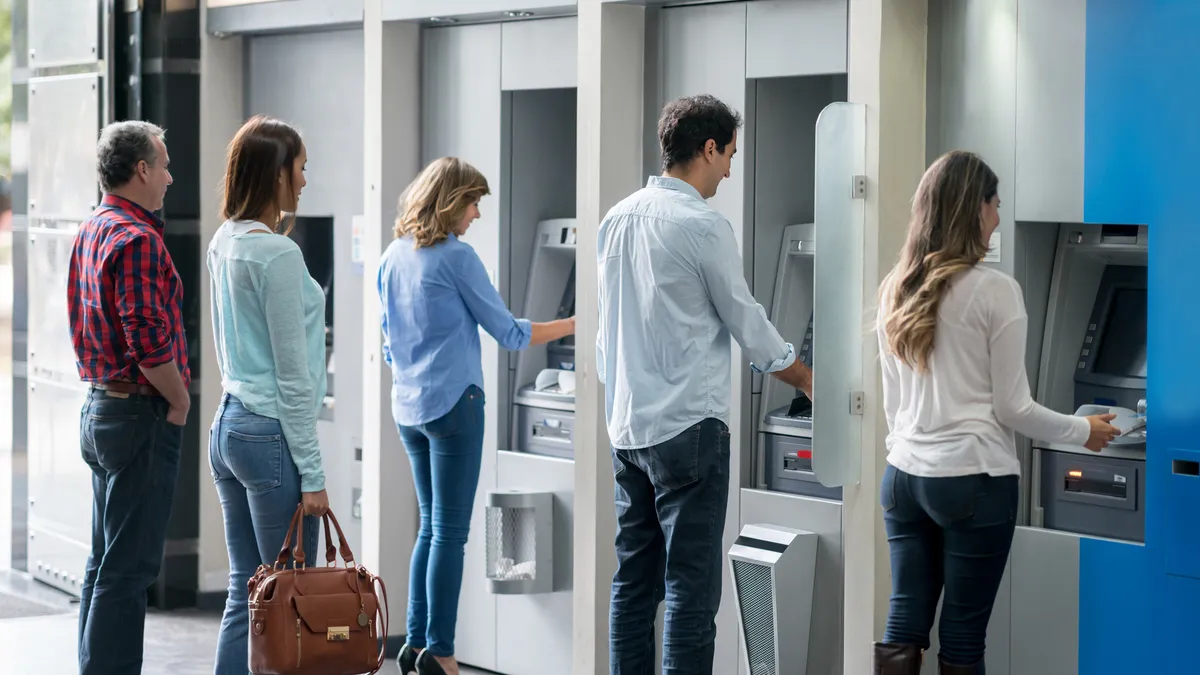The tight relationship between CFO and controller has played a role in the effort by fintech Coinme to make the buying and selling of cryptocurrencies as easy as going to an ATM or coin-cashing machine.
Coinme launched in 2014 to develop an application programming interface (API) that companies use to convert their ATMs or coin-cashing kiosks into crypto-dispensing machines.
Once they have access to the API, a company like Coinstar, which operates thousands of coin-cashing kiosks around the United States, can enable customers to convert their coins into crypto rather than cash or a debit card. ATM companies can use the API to let consumers tap their crypto for cash.
The company completed a later-stage venture capital Series A round in June, giving it about $35 million to build its business, and it’s now completing the last of the paperwork to operate in states around the country as a money transfer license (MTL) holder.
“It has not been easy to get MTLs,” Coinme CFO Chris Roling told CFO Dive. “But we made the investment and took the time to take the regulatory high road … and now it’s a question of administration and compliance.”
Financial preparation
To complete the MTLs, Roling said, he relied on his tight working relationship with his controller, Abbey Lakin, to prepare the financials, including 3-4 years of projected balance sheets, which states want to see to ensure the company has the financial strength to protect consumers.
“They want to know, basically, are you financially sound?” said Roling, a former CFO of Kelloggs, Getty Images and international operations at PepsiCo, among other companies.
Each state approaches the licensing process differently, so each application had to be completed separately from the information provided to the other states.
“That has required us to almost have to draft state-by-state plans,” he said. “Finance had to come up with state-by-state pro formas.”
Application path
To smooth the process, Roling worked closely with the company’s chief compliance officer to ensure the company’s financials accorded with state rules, and worked with the controller to give him the base on which he could build financial projections.
“Very much from a base perspective, the controller is involved,” he said. “I then essentially just extrapolated [projections] based on my gut feel for how we think sales will do and then we have a rule of thumb in terms of what our gross margin will be, what our expenses will be, etc., and the P&L follows.”
The controller is also integral to meeting each state’s tax requirements, both for income taxes, where the company has nexus, and sales tax, where the company’s share of revenue is taxable.
Given the company’s limited state tax exposure, since it earns money through a revenue sharing agreement with the ATM or kiosk owners which is taxed at a lower rate than if it made its money directly, its liabilities tend not to be high but the requirements are an administrative burden that largely falls on the controller.
“We run into quite a bit of complexity from state and local tax, and since state and local taxation and federal tax is within the bailiwick of the controller, she’s obviously very focused on that,” he said.
Operational focus
Roling said he has tried over the years to hire and encourage controllers who are operationally focused and not just experts on generally accepted accounting principles (GAAP).
“I don’t think I’ve ever hired somebody who is purely U.S. GAAP-oriented or wants to be buried in the books per se,” he said. “Maybe that’s why the controllers I’ve worked with have always played a strategic, future-looking role.”
The main function of a controller is to be inward focused, overseeing accounting operations, financial controls and reporting, but in a small or startup company, controllers work best when they have an outward-focus orientation, he said.
Coinme’s finance function is managed by a staff of five.
“The beauty of being controller in a small company like Coinme is you have tremendous visibility,” he said. “The bad thing is, you have tremendous visibility. There’s no place to hide. So, by nature, the controller is forced to become involved outside their comfort zone, and it’s all hands to the pump.”
At Coinme, which generates income through partnerships with companies that dispense cash, the controller must look ahead to see the partnerships that are being added and prepare the accounting function to handle that.
“We’re now looking to go international,” he said. “We have a product roadmap that has 21 products on it, so [the controller] must know what’s coming down the pike, work with the engineers, and talk to the accounting departments in these partners. You’ve got no choice but to become proactive.” The company's first foreign market will be Brazil in 2022.
Job criteria
When he’s hiring a controller or promoting an internal candidate to the job, Roling said, he starts with their GAAP and tax expertise, but after that, he focuses on their soft skills – the ability to communicate complex financial matters and to build and manage a team. Those are executive skills that aren’t taught in accounting classes.
“Those social skills are quite important because literally, even within Coinme, our customers are very much the internal customers,” he said, referring to the heads of the company’s business functions. “The controller is able to do a more effective job if they can communicate the results, communicate policies, help manage the auditors and the annual audit and state audits that come in. So, the whole aspect of social skills is huge.”
“You can’t see that much in a CV,” he said. “So, the challenge when recruiting is to try to suss out if this person will be able to roll up their sleeves and be a copilot. I’ve been fortunate that I’ve been able to find commercially oriented and operational finance controllers over the years.”






















